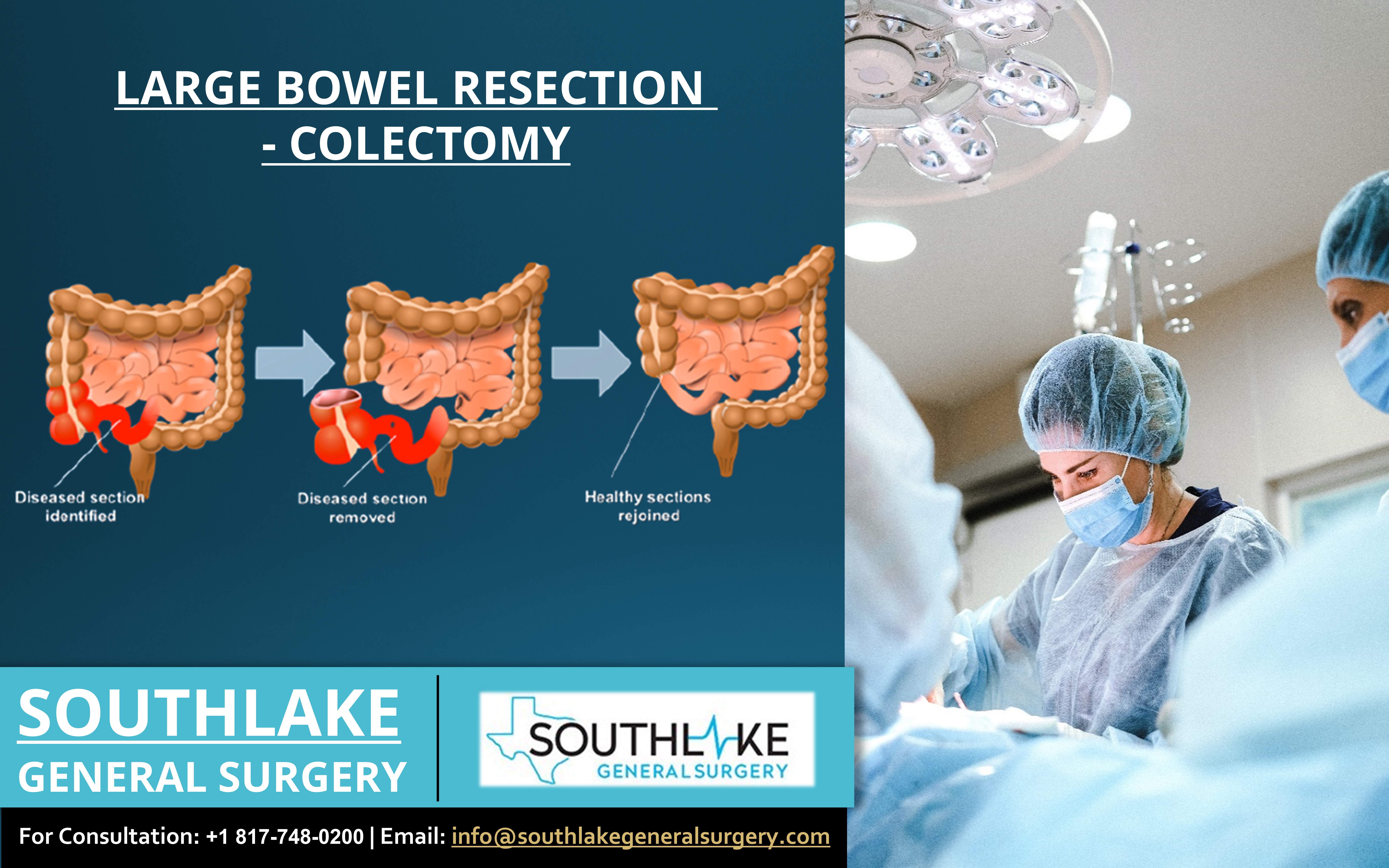Colectomy is also called large bowel resection. The objective of large bowel resection is to remove the infected area of the large bowel which is also known as the colon or large intestine.
In colon surgery, the surgeon removes the infected area of the bowel and then joins the healthy parts of the bowel. The surgeon can also remove all or a portion of the bowel.
Your surgeon may choose to opt for a colostomy, in case, there’s not healthy intestine after surgery. Under this procedure, the general surgeon fixes the one end of the large intestine to the outer portion of the abdominal wall and joins a colostomy bag to the abdomen until the intestines heal. In few circumstances, it can be temporary or permanent. This colostomy bag collects the stools passes from the large intestine. Stools are generally soft or in liquid form.
What are the reasons for a large bowel resection (Colectomy)?
Reasons for a large bowel resection procedure is to treat health conditions such as:
- Colon cancer
- blockage in the intestines due to tumours or scar tissues.
- diverticulitis is an ailment related to the large bowel
- Infection
- Precancerous polyps
- Irritable bowel disease
- bleeding in the intestines
- volvulus – refers to an unusual twisting of the bowel
- ulcerative colitis is a kind inflammation of the bowel
- intussusception happens when one part of the intestine slides into another part of the intestine
Risk of a large bowel resection
Every surgery has its associated risk which may include:
- infection, breathing issues, bleeding, heart stroke, blood clots, pneumonia, or damage to close structure.
The associated risk with large bowel resection include:
- Internal abdomen bleeding
- problems with the colostomy, for example as skin irritation
- bladder or close by organs injury
- an incisional hernia that happens when tissue get through the surgical incision
- dehiscence, an opening of a surgical wound
- general anesthesia reactions such as breathing issues.
Symptoms of a colorectal disease
- Bleeding from the rectum
- Abdominal pain
- Change in bowel habits (diarrhea, constipation, stool size, etc.),
- Weight loss, Anaemia, Cramping, or vomiting
- Fever among many others.
How to get prepared for a large bowel resection (Colectomy)?
At least two weeks prior to the colon surgery, discuss with the doctor any of your medical history, present illness, medicines, supplements, or over-the-counter medicine you’re taking.
Prior to your surgery, your doctor may suggest you:
- quit smoking
- drink plenty of water and eat high fiber meals
- stop taking blood-thinning medicines for example aspirin, ibuprofen, etc
A couple of days prior to the large bowel resection, the doctor will prescribe you to take:
- take laxatives to empty your bowel and enema to clear the colon
- only take clear fluids, like fresh juice, water, or broth
Your doctor may advise fasting for 12 hours prior to your surgery day and follow the guidelines advise by your doctor.
Colectomy or Large bowel resection procedure at Southlake General Surgery, Texas.
You’ll receive general anesthesia before the surgery begins. This will keep you asleep during the surgery. It will also keep you from feeling pain. Your surgeon may perform a laparoscopic colectomy or open colectomy.
Large bowel resection at Southlake general surgery, Texas is performed under the experienced board-certified general surgeon Dr. Valeria Simone MD. This procedure begins with general anesthesia to keep you at sleep during the surgery. The patient may be prescribed for Laparoscopic surgery or open colectomy.
In Laparoscopic Colectomy procedure, the surgeon makes few small an incision close to the affected area and use a small tube with a micro camera on the top called a laparoscope to see the exact condition of the intestines. It is also known as minimally invasive surgery.
In an open colectomy procedure, the surgeon makes one large incision in the abdomen to view the intestines.
Both surgeries have the same objective, the surgeon gets to the bowel with one or more incisions and removes the infected part of the intestine and the remaining healthy part is sutured or stapled. This procedure is also known as anastomosis. If there is any requirement, the surgeon may go for a colostomy. Once the surgery is completed incision will be closed with stitches.
After a large bowel resection procedure
The patient needs to stay in the hospital for about a week after the surgery and based on the medical condition and response after surgery can increase or decrease your stay in the hospital. The patient needs to stick with instructions on post-surgery meals. Once the healing starts thicker liquids and soft foods can be added to the diet.
Complete recovery after a large bowel resection may take around two months.
To know more about Colectomy or large bowel resection, cause, symptoms, diagnosis, treatment, cost of colectomy, or consultation. Please contact our healthcare expert at +1 (817) 748-0200. For online appointments. Click Here
Follow us on Facebook

